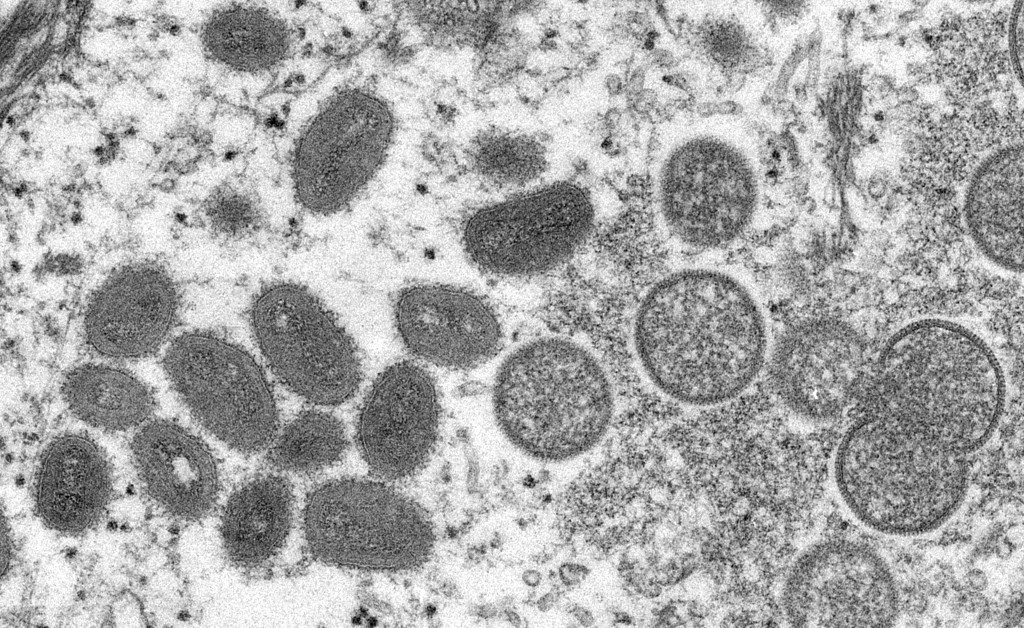Popular Reads
Top Results
Can't find what you're looking for?
View all search resultsPopular Reads
Top Results
Can't find what you're looking for?
View all search resultsRI on alert as monkeypox emerges in Australia
The government is increasing its vigilance over the potential emergence of monkeypox in the country, after several cases were detected in Australia.
Change text size
Gift Premium Articles
to Anyone
T
he Health Ministry is stepping up surveillance for monkeypox as more cases of the viral disease are being reported in non-endemic countries across the globe, including neighboring Australia.
Even though Indonesia had not detected a single case to date, ministry spokesperson Mohammad Syahril urged the public and all health workers to be alert and aware of the symptoms of the disease.
“Symptoms include fever, intense headache, muscle aches, back pain, low energy, swollen lymph nodes and a rash or lesions. These symptoms usually occur between six to 16 days after infection, although in some cases they occurred after five to 21 days,” Syahril told a press conference earlier this week.
He also advised people who were experiencing symptoms, especially people who had recently returned from countries that had reported cases of the disease, to get an immediate checkup.
According to the European Centre for Disease Prevention and Control (ECDC), a total of 219 confirmed cases had been reported as of Wednesday in 21 countries where the disease is not endemic, including Argentina, Canada, Denmark, France, the United Arab Emirates, the United Kingdom and the United States.
Syahril said the government would soon be issuing a circular for health officials, border patrol officials and health workers to raise awareness on the disease. It was also preparing laboratories to run test for the monkeypox virus and facilities for treating potential patients.
The ministry was also updating its technical guidance on clinical management, infection prevention and surveillance for monkeypox based on the latest guidelines from the World Health Organization (WHO).
‘Unusual’ outbreak
Monkeypox is a rare zoonosis caused by the monkeypox virus and is in the same family as smallpox. It is endemic in parts of west and central Africa.
Earlier this month, the UK detected several cases of monkeypox in people without any history of travel to Africa.
It remains unclear what is driving the outbreak, with scientists trying to understand the origins of the cases and whether anything the virus had changed. The WHO has said there is no evidence of a mutation thus far.
Read also: WHO expects more cases of monkeypox to emerge globally
The global health agency said most cases were detected among young men as well as people self-identifying as men who have sex with men, a remark that has caused a stir among equal rights activists.
Virologist I Gusti Ngurah Mahardika from Udayana University in Denpasar, Bali, said he suspected the recent outbreak was connected to a monkeypox outbreak in West Africa region earlier this year, but emphasized that more data was necessary to support his theory.
“We need to check whether people who are in close contact with patients have traveled to Africa this year. It’s also interesting to note that North America, Australia and Europe, where unusual outbreaks of monkeypox have occurred, have large immigrant populations. I think we need to look further into this aspect [of the disease] as well," he told The Jakarta Post on Friday.
Transmission potential
According to Syahril, monkeypox was primarily transmitted to people from wild animals, although human-to-human transmission was also possible.
“Monkeypox is transmitted from one person to another through close contact with an infected person or animal, or with material contaminated with the virus. There is also the possibility that it could spread through respiratory droplets,” he said.
Syahril added that fluids from monkeypox blisters were particularly infectious, and that contact with clothing, bedding, towels and other objects contaminated with this fluid could also infect others.
“Practicing good hygiene is a very effective way to stop the disease’s spread,” he stressed.
Syahril also called on the public not to panic over the possibility of a local outbreak, as the disease was usually self-limiting and symptoms generally subsided without treatment. However, he noted that the disease could be fatal among vulnerable groups, such as the elderly and people with preexisting health issues.
The case fatality ratio of monkeypox is between 3 and 6 percent, and no related deaths have been reported so far in non-endemic countries.
Udayana’s Mahardika said the government needed to prepare diagnostic tools and increase public awareness to detect any cases early.
“If monkeypox cases are detected, the government can also vaccinate the patients’ close contacts using the smallpox vaccine. Still, I am not sure whether the government still has it in stock, as smallpox vaccinations ceased worldwide after [smallpox] was eradicated in 1980,” he said.
Scientists recently said that people who were vaccinated against smallpox were likely to have some protection against monkeypox.










